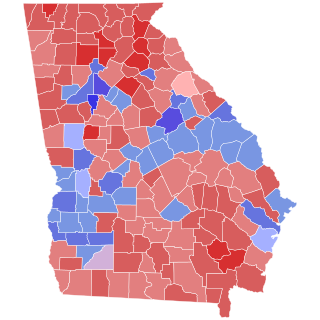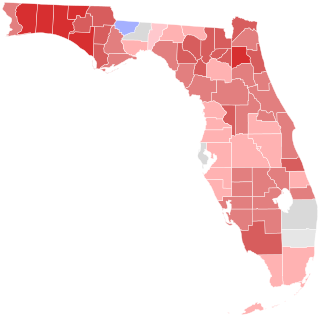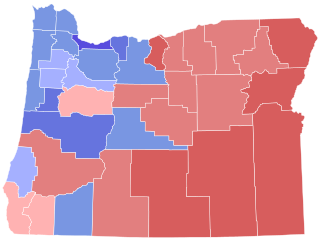
The 1996 United States presidential election was the 53rd quadrennial presidential election, held on Tuesday, November 5, 1996. Incumbent Democratic President Bill Clinton defeated former Senate Majority Leader Bob Dole, the Republican nominee, and Ross Perot, the Reform Party nominee and 1992 Independent presidential candidate.

Andrew Lamar Alexander Jr. is an American politician and attorney who served as a United States Senator from Tennessee from 2003 to 2021. A member of the Republican Party, he also was the 45th governor of Tennessee from 1979 to 1987 and the 5th United States Secretary of Education from 1991 to 1993, where he helped with the implementation of Education 2000.
Ballot access are rules and procedures regulating the right to candidacy, the conditions under which a candidate, political party, or ballot measure is entitled to appear on voters' ballots in elections in the United States. The jurisprudence of the right to candidacy and right to create a political party are less clear than voting rights in the United States. However, the U.S. Supreme Court has established in multiple cases that the federal constitution does not recognize a fundamental right to candidacy, and that state governments have a legitimate government interest in blocking "frivolous or fraudulent candidacies". As election processes are decentralized by Article I, Section 4, of the United States Constitution, ballot access laws are established and enforced by the states. As a result, ballot access processes may vary from one state to another. State access requirements for candidates generally pertain to personal qualities of a candidate, such as: minimum age, residency, and citizenship. Additionally, many states require prospective candidates to collect a specified number of qualified voters' signatures on petitions of support and mandate the payment of filing fees before granting access; ballot measures are similarly regulated. Each state also regulates how political parties qualify for automatic ballot access, and how those minor parties that do not can. Fundamental to democracy, topics related to ballot access are the subject of considerable debate in the United States.

The 2008 United States Senate elections were held on November 4, 2008, with 35 of the 100 seats in the Senate being contested. Thirty-three seats were up for regular elections; the winners were eligible to serve six-year terms from January 3, 2009, to January 3, 2015, as members of Class 2. There were also two special elections, the winners of those seats would finish the terms that ended on January 3, 2013. The presidential election, which was won by Democrat Barack Obama, elections for all House of Representatives seats; elections for several gubernatorial elections; and many state and local elections occurred on the same date.

The 2006 Texas gubernatorial election was held on November 7, 2006, to elect the governor of Texas. The election was a rare five-way race, with incumbent Republican Governor Rick Perry running for re-election against Democrat Chris Bell and Independents Carole Keeton Strayhorn and Kinky Friedman, as well as Libertarian nominee James Werner.

The 2006 Pennsylvania gubernatorial election was held on November 7, 2006 and included the races for the Governor of Pennsylvania and Lieutenant Governor of Pennsylvania. Incumbent Democratic Governor Ed Rendell successfully ran for re-election. Pennsylvania's first female lieutenant governor, Catherine Baker Knoll, was also running for re-election.

The 2006 United States Senate election in Vermont was held November 7, 2006. Incumbent independent Senator Jim Jeffords decided to retire rather than seek reelection to a fourth term, and Bernie Sanders was elected to succeed him.

The 2006 United States Senate election in Tennessee was held on November 7, 2006. Incumbent Republican Senator Bill Frist, the Majority Leader, retired after two terms in office. The open seat was won by Republican nominee Bob Corker, who defeated Democratic nominee Harold Ford Jr.
The Independent Greens of Virginia was the state affiliate of the Independence Party of America in the Commonwealth of Virginia. It became a state party around 2003 when a faction of the Arlington local chapter of the Green Party of Virginia (GPVA) split from the main party. As of 2011, it bills itself as a "fiscally conservative, socially responsible green party", with an emphasis on rail transportation and "more candidates". In support of wider ballot participation, it endorses many independent candidates who are not affiliated with the party.

The 2008 United States Senate election in Georgia took place on November 4, 2008. The run off election took place on December 2, 2008. Republican Senator Saxby Chambliss, first elected in 2002, sought re-election to his position as a United States Senator from Georgia. He was challenged by Democratic nominee Jim Martin and Libertarian nominee Allen Buckley. After a runoff election on December 2, Chambliss was elected.

The 2010 Maine gubernatorial election took place on November 2, 2010 to elect the governor of Maine. Incumbent Democratic governor John Baldacci was term-limited and could not seek re-election to a third consecutive term. Primary elections took place on June 8, 2010. The candidates who appeared on the November ballot were : Eliot Cutler (Independent), Paul LePage (Republican), Libby Mitchell (Democratic), Shawn Moody (Independent), and Kevin Scott (Independent).

The 2010 United States Senate election in Florida took place on November 2, 2010, concurrently with other elections to the United States Senate in other states, as well as elections to the United States House of Representatives and various state and local elections.

The 2012 United States Senate election in Tennessee took place on November 6, 2012, as part of the general election including the 2012 U.S. presidential election, elections to the House of Representatives and various state and local elections. Incumbent Republican U.S. Senator Bob Corker won a second term in a landslide, carrying all but two counties in the state.

The 2014 United States Senate election in Tennessee took place on November 4, 2014, to elect a member of the United States Senate from the State of Tennessee. Incumbent Republican U.S. Senator Lamar Alexander defeated Democrat Gordon Ball, and was re-elected to a third term in office with 61.9% of the vote against 31.9%.

The 2014 United States Senate election in Oregon took place on November 4, 2014 to elect a member of the United States Senate to represent the State of Oregon, concurrently with the election of the Governor of Oregon, as well as other elections to the United States Senate in other states and elections to the United States House of Representatives and various state and local elections.

The 2014 United States Senate election in Alabama took place on November 4, 2014, to elect a member of the United States Senate for Alabama.

The 2020 United States Senate elections were held on November 3, 2020, with the 33 class 2 seats of the Senate contested in regular elections. Of these, 21 were held by Republicans, and 12 by Democrats. The winners were elected to 6-year terms from January 3, 2021, to January 3, 2027. Two special elections for seats held by Republicans were also held in conjunction with the general elections: one in Arizona, to fill the vacancy created by John McCain's death in 2018; and one in Georgia, following Johnny Isakson's resignation in 2019. These elections ran concurrently with the 2020 United States presidential election in which incumbent president Donald Trump lost to Democratic nominee Joe Biden.

The 2020 United States Senate election in Tennessee was held on November 3, 2020, concurrently with other elections to the United States Senate. The 2020 U.S. presidential election and elections to the U.S. House of Representatives were also held, as well as the State Senate and State House elections. Incumbent Republican Senator Lamar Alexander announced that he would not run for re-election on December 17, 2018. The former United States Ambassador to Japan, Bill Hagerty won the open seat by a large margin defeating his Democratic opponent Marquita Bradshaw.

The 1974 Tennessee gubernatorial election was held on November 5, 1974, to elect the next governor of Tennessee. Incumbent Republican Governor Winfield Dunn was ineligible to run for re-election, as the Constitution of Tennessee prohibited governors from serving consecutive terms at the time. Democratic nominee Ray Blanton defeated Republican opponent Lamar Alexander with 55.4% of the vote.

Tennessee state elections in 2020 were held on Tuesday, November 3, 2020. Primary elections for the United States Senate, United States House of Representatives, Tennessee Senate, and Tennessee House of Representatives, as well as various judicial retention elections, were held on August 6, 2020.


















